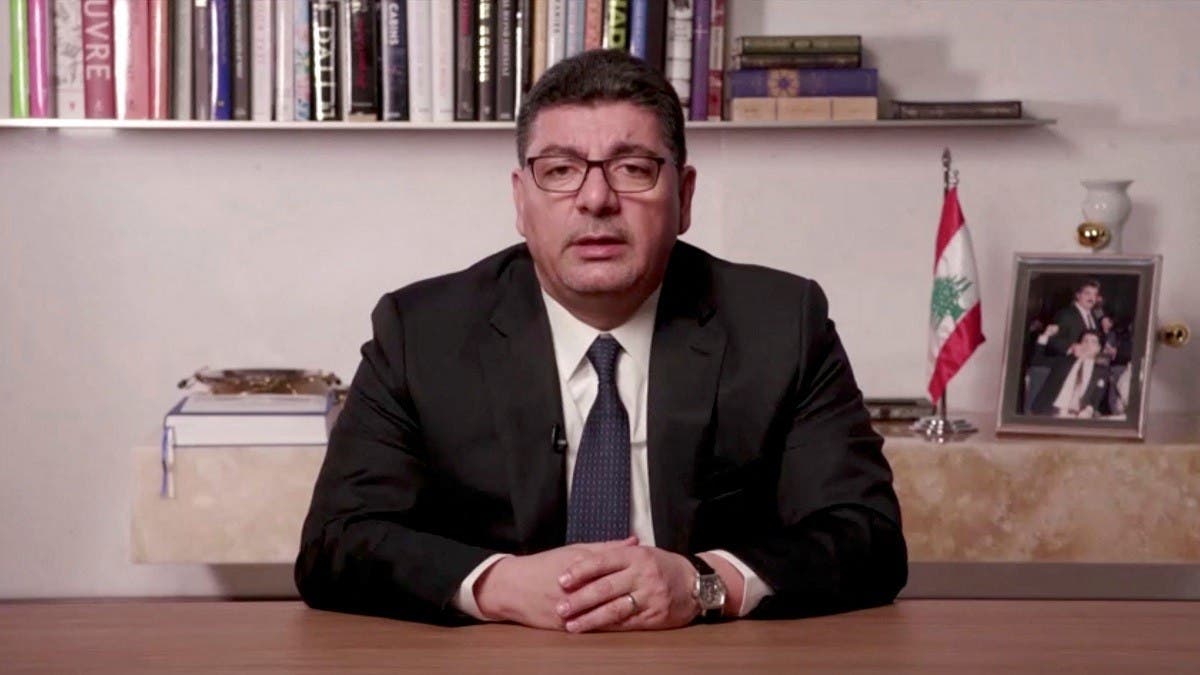Former Prime Minister Saad Hariri’s older brother says he hopes upcoming elections in crisis-hit Lebanon will bring about a new generation of leaders, adding that he’ll do whatever he can to bring about positive change and accountability for past corruption.
Bahaa Hariri also describes the Lebanese militant group Hezbollah as a terrorist organization, calling it part of the country’s “failed past.”
For the latest headlines, follow our Google News channel online or via the app.
His statements to The Associated Press this week came a month after his brother, former Prime Minister Saad Hariri, announced he was bowing out of politics and would not run in parliament elections scheduled for May. Hariri’s bombshell decision marked the first time in three decades the powerful Sunni family is out of politics, adding uncertainty in a country grappling with a financial meltdown.
Bahaa Hariri has not said whether he will step in and run for office himself.
The two brothers have been at odds since Saad Hariri took over the mantle of his slain father, Rafik Hariri, after he was assassinated in a massive truck bombing in 2005. Afterward, the family chose Saad Hariri to lead, skipping over his brother, Bahaa, who is several years his senior.
Bahaa, who is seen as confrontational compared to the more moderate Saad, has in recent years criticized his brother for being too soft and compromising on Hezbollah, coexisting with the Iran-backed group in successive coalition governments he led. That also cost him support from Sunni powerhouse Saudi Arabia, the rival of Iran, who came to perceive him as too lenient with Hezbollah.
Mired in financial troubles and having lost Saudi Arabia’s political support, the former premier announced he was leaving politics and would not run in the elections, calling on his political movement, the Future Movement, to take the same step.
Bahaa Hariri has not said whether he will be running himself or will only support candidates in the elections. It is also not entirely clear whether Saudi Arabia’s Crown Prince Mohammad Bin Salman sees him as the kingdom’s new man in Lebanon.
The 56-year-old businessman has lived outside Lebanon for most of his life. He has been widely criticized for staying away, only parachuting in when his brother hit trouble. Many among those who revolted against the political class in 2019 are unlikely to support Bahaa Hariri, whose family was blamed for corruption in the post-civil war era.
Bahaa Hariri’s name was first mentioned in Lebanese media reports as a possible Saudi-backed candidate to replace his brother when Saad Hariri announced his resignation from the Saudi capital in November 2017, citing Hezbollah’s dominance of Lebanon.
He later came back as premier and then resigned again in 2019 in response to nationwide mass protests against the country’s ruling class.
“The difference between me and family members who have practiced politics in the last 15 years is very wide and I cannot accept the failed policies practiced by some, which led the country to this collapse,” said Bahaa Hariri, in an indirect reference to his brother.
“The people are demanding a new generation of leadership that is completely divorced from those who for the last 15 years led us to where we are today — a failed state.”
Hariri, who replied Sunday to written questions sent to him by the AP from his base in London, suggested he would not work with Hezbollah.
“I see Hezbollah as the failed past not the future of Lebanon. Terrorist organizations destroy countries they don’t build nations,” he said. “The people don’t need more bullets, they need bread, jobs, electricity, and a government that serves all the people.”
Bahaa Hariri worked in his family’s construction and development company, Saudi Oger, in Saudi Arabia. He later left the company and now runs his own real estate and investment businesses.
Bahaa Hariri has recently been spending significant money in Lebanon, funding an online media platform called Sawt Beirut International and a political movement called Sawa Li Lubnan, or Together for Lebanon, casting it as a vehicle for change.
Among his priorities, he said, is to have an open and transparent financial audit of the entire government and banking sector.
“Where has the money gone?” he asked. “All those responsible for corruption should be brought before the courts and held accountable for their actions.”
Read more: UN Security Council issues veiled criticism of Lebanon’s Hezbollah

 World3 years ago
World3 years ago
 World3 years ago
World3 years ago
 Business11 months ago
Business11 months ago
 Entertainment7 years ago
Entertainment7 years ago
 World7 years ago
World7 years ago
 Entertainment7 years ago
Entertainment7 years ago






